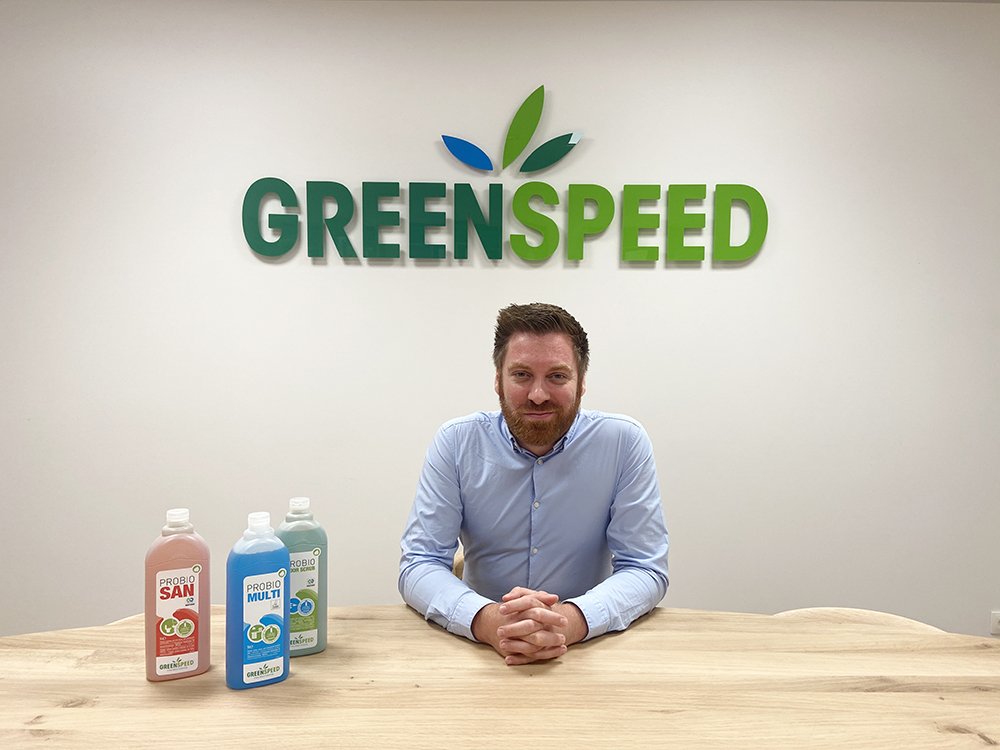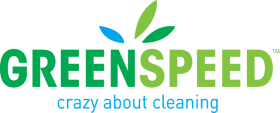
Third Greenspeed webinar - Probio: an evolution and revolution in bacterial cleaning
27/07/2020 - Floor Loos
Why not start this conversation about cleaning by talking about dirt? Why and how do we actually clean? Greenspeed's webinar "Probio, an evolutionary way of cleaning" once again sets out a new course after the previous webinars on the low touch economy and the naked truth about microfibre. This time Greenspeed Product Manager Stefaan Aernouts goes through a handful of questions and provides answers and some impressive figures that will be useful for our health and our future. For you, for us, for everyone. The fact is that cleaning goes beyond aesthetics, functionality and maintenance. An essential part of cleaning is its impact on the environment and on human health (and safety). A study on probiotic cleaning using 24,875 samples from 11,842 patients in six hospitals presented promising results: 54.8% fewer hospital infections and 100 times fewer antibiotic resistance genes. This webinar is about an important beginning and an important ending.
To explain how probiotic cleaners work, Stefaan starts the webinar with a question: "Why do we clean?". "There's a difference between organic dirt (from live organisms) and inorganic dirt, such as rust (from things other than live organisms). However, we can make another type of distinction in terms of dirt: hydrophilic substances are highly soluble in water and hydrophobic substances are difficult to dissolve in water. Conventional cleaning agents make it easier to dissolve the hydrophobic dirt, because these detergents contain a solvent and a surface active agent, the surfactant. That's where the beginning and the end come into play: the hydrophobic and hydrophilic agents." Stefaan systematically gives a valuable, brief chemistry lesson about the dissolution of dirt.
What are probiotic cleaners and how do they work?
Probiotic cleaning agents are a combination of conventional cleaning agents and added bacteria. Bacteria are microscopic, single-cell organisms. By way of example, a human being consists of 40 trillion cells. Another fact is that bacteria are everywhere, while all animal life is dependent on bacteria. "Bacteria are absolutely essential, but they can also be dangerous", Stefaan explains.
This duality probably explains the outcome of the first webinar participants' poll: who believes in cleaning with bacteria? It sounds contradictory, but bacteria do have a positive impact on cleaning effectiveness, human health and the environment. The poll shows how convincing probiotics are, coming in at 57%. This is more than half, but it does leave us with a challenge ahead.
"Bacteria form a simple cycle, a circle, which immediately explains the circular power of probiotics: from survival and multiplication to adaptation and evolution. What bacteria need is food, which in their case means organic dirt. Therein lies the crux: bacteria use dirt to reproduce, while organic dirt is exactly what cleaners aim to remove. The conventional component of probiotic cleaners (based on conventional chemistry) therefore ensures that inorganic dirt, such as dust and sand, is removed. The bacteria will then tackle the organic dirt."
And yet bacteria can be a powerful resource for cleaning
Stefaan illustrates how bacteria work in a Probio cleaning agent in the Greenspeed webinar "Probio, an evolutionary way of cleaning". "The bacteria are in a hibernation-like state, so they can survive without nutrition for a very long time. They are protected against the hostile environment of the concentrated cleaning agent in a type of mini-bunker. Once the product is diluted with water and applied to the surface, the bacteria will wake from their hibernation state and start looking for nutrition. The bacteria will produce enzymes."
"The effect of enzymes can be compared to cutting a chain with bolt cutters. The organic molecules consist of large links (a limited number of building blocks) and the enzymes act as large bolt cutters that cut and break the chain (the organic dirt) into small pieces. The bacteria then absorb these small pieces of organic dirt as food so that they can multiply. As long as there is food, the bacteria will absorb the dirt and continue to do their job."
How can probiotic cleaners help you?
Greenspeed launched the Probio line at Interclean Amsterdam in 2018. This cleaning line has four major benefits. The first benefit is deep cleaning. Cleaning with conventional chemicals has an effect of seconds, but cleaning with probiotics has an effect of hours and days. This has been proven and is quite surprising. It has also been proven that probiotic cleaners have an effect on porous surfaces, which has an effect on periodic cleaning, for example. Thanks to daily/regular cleaning with probiotic cleaners, floor maintenance can be postponed and summer holidays no longer have to be spent giving floors a thorough clean.
Odour control is yet another benefit. "By adding large quantities of good bacteria to the surface, the bacteria that are producing the odour no longer stand a chance", Stefaan adds. "Good bacteria are also good for the environment." This takes us to Greenspeed Probio's third benefit: it is environmentally beneficial. "The conventional cleaning method introduces potentially hazardous substances into the environment. Conventional cleaners therefore always have some impact on the environment. Probio has the opposite effect: the probiotics also restore the microbial balance and have a purifying effect when they are released into the environment."
The fourth and final benefit is safety. Thanks to probiotics, none of the Probio bottles and cans carry any hazard symbols. Stefaan proudly talks about the highest possible material health rating awarded with the Cradle to Cradle Gold certificate.
The future of probiotics
The future of probiotics is here! Yet you need numbers to make a proper impression. Stefaan supports his presentation with experiences and research from before the coronavirus outbreak: "15% of all hospital patients acquire a hospital infection. In Europe, this means 3.2 million patients and 37,000 deaths a year. Research into the effect of probiotic cleaners and the reduction in infections started more than 10 years ago. The most important publication* about an 18-month study using 24,875 samples from 11,842 patients in six hospitals was published in 2018. The results were positive. For example, there were 54.8% fewer hospital infections and 100 times fewer antibiotic resistance genes." That gives us a great deal of hope for our future!
Can you use Probio in combination with disinfectant? Is disinfection still necessary if you are using Probio? Stefaan will be happy to explain this to you (in person):



